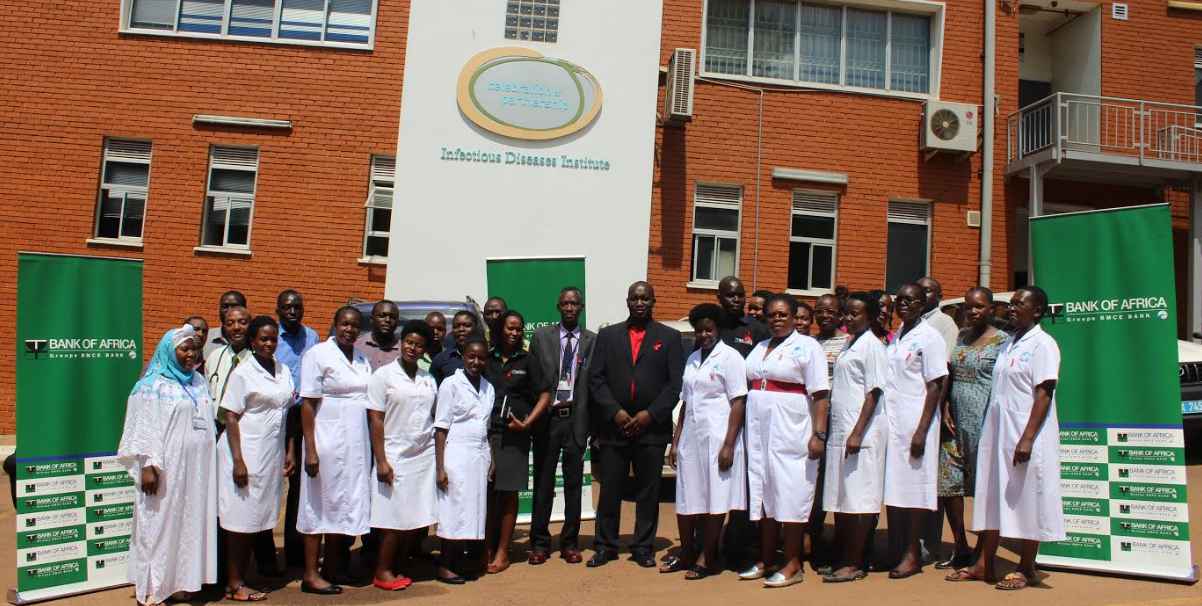Bank of Africa, today, joined the Infectious Disease Institute (IDI) to celebrate the international world Aids day with the aim of empowering people to fight for their right to be healthy
While Uganda has started recording a decline in HIV infections, the fishing communities are still ranked among the most-at-risk populations that record the highest number of infections according to the Uganda Aids Commission
According to Dr Isaac Lwanga, the Head of Department at IDI says, the clinic has enrolled about 7,840 active clients and attends to 176 average daily client visits. He added that 5,996 clients are on the first line antiretroviral therapy (ART); 1,389 on second line and 176 on third line, Mr Lwanga said.
To strengthen patients’ participation in safety issue, the clinic has a training programme for young adults to promote patient safety in HIV clinics, Mr Lwanga says. Adding that, this training help bring voices of patients to the forefront of health care and create partnerships between patients, family members and other healthcare stakeholders, He said.
Steve Kwesiga, head of Marketing and product development at Bank of Africa say, the bank is proud to join the world to mark this important day. BOA has an elaborate health policy the caters and supports people living positively in order to provide a conducive environment and empower them. He said, adding we are in the fight against HIV together.
Miss Faridah Mayanja, a senior clinic manager at IDI further cautioned the patients at the clinic to follow doctors’ instructions to the latter, arguing that missing appointments and irregular taking of drugs can make one develop AIDs or get chronic symptoms that are dangerous, Faridah said.

To make sure all patients take their HIV antibiotics, the IDI clinic sends reminder texts and message to patient. The clinic has also embarked on testing people at home especially those who fear to go to the clinic
HIV report
The July 2015 to 2016 HIV/Aids Uganda Country Progress Report the number of Ugandans who get infected with HIV in 2015 dropped to 83,000 from 95,000 the previous years. The report estimates the national HIV prevalence at 73% with the highest among commercial sex workers, ranging between 40% and 45%. The percent of new infectious recorded in the country are attributed to prostitution.










